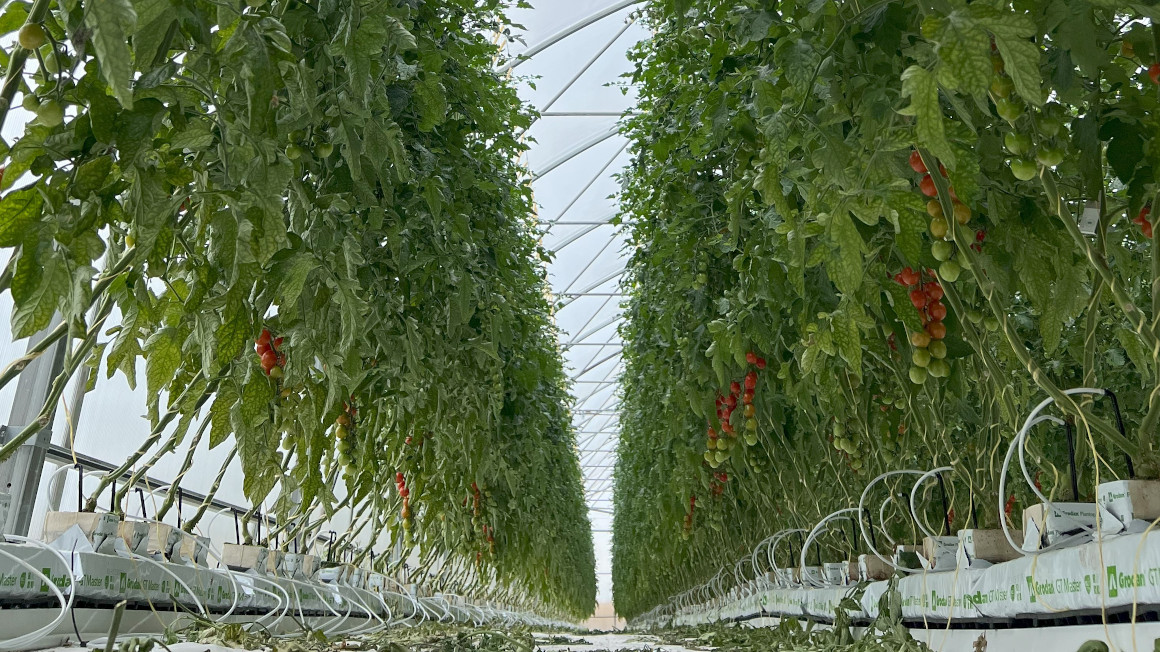First real laboratory for sustainable vegetable cultivation
The newly developed HypoWave system for hydroponic vegetable cultivation with recycled wastewater is now being used in a large-scale trial on a farm in the district of Gifhorn.

Water is a precious commodity and often causes conflicts of use. Water shortages are already occurring in some regions of Germany due to heat and drought. According to experts, agriculture alone accounts for 70% of global water consumption as the main food producer and is therefore particularly reliant on cultivation methods that ensure food security in the future with little water. As part of the “HypoWave+” project, partners from research and industry have developed a particularly water-efficient method for hydroponic vegetable cultivation in recent years. Recycled wastewater from sewage treatment plants is used to irrigate and supply nutrients to the plants.
Practical test for hydroponic vegetable cultivation
This efficient cultivation method is now being used for the first time under real conditions on a farm in the district of Gifhorn in Lower Saxony. The first large-scale implementation of the HypoWave system is taking place in a 1,600 square meter greenhouse at IseBauern GmbH & Co. KG in Wahrenholz, which is located in the immediate vicinity of a sewage pond belonging to the Gifhorn water association. According to the researchers, the wastewater is treated to a high quality in a multi-stage process with a micro sieve, innovative activated carbon biofilter, sand filter and a UV reactor, with the excess and purified water flowing back into the treatment ponds.
Opportunity for research
“The commissioning of the largest real-world laboratory of its kind to date by IseBauern and the cooperation with the Gifhorn municipal water association is an extraordinary opportunity for research,” says project coordinator Martina Winker from the Institute for Social-Ecological Research (ISOE). “We can scientifically accompany the development of the HypoWave system with all its scientific, technical and social innovations from the pilot project to market maturity and deal with questions of quality management, marketing and cooperation between the stakeholders involved.”
High-quality and nutrient-rich water
The HypoWave system is an alternative to conventional irrigation with drinking water and groundwater, as municipal wastewater is treated and used for irrigation. At the same time, the plants are also optimally provided with nutrients. “The plants are supplied with important substances such as nitrogen and phosphorus directly from the treated water. The water quality is particularly high, as it is rich in nutrients and free from pollutants and pathogenic germs,” explains HypoWave+ project manager Thomas Dockhorn from the Technical University of Braunschweig.
IseBauern GmbH is currently using the HypoWave system to grow tomatoes. In the first year, the treated sewage water is therefore only being used for two of the 15 cultivation lines. According to the researchers, however, the entire greenhouse can also be supplied with HypoWave water in future. Up to 11,000 kilograms of tomatoes could then be harvested annually.
Investing in the future
“We see the cultivation trial as an investment in the future and an adaptation measure to climate change,” says Stefan Pieper from IseBauern GmbH. “With the HypoWave system, we can make ourselves independent of seasonal water shortages and protect our harvests from extreme weather conditions.”
According to the researchers, it is not only farms that can benefit from the HypoWave system. It is also a sustainable method for municipal operators of wastewater treatment plants who want to make their sewage ponds available for water reuse. “The cultivation method in a greenhouse with treated wastewater in the vicinity of our ponds is completely new for us, but is already proving to be a win-win situation for agriculture and municipal water companies,” says Christian Lampe, Managing Director of the Gifhorn Water Association. “We are also hoping for impetus for increased use in conventional irrigation.”
The joint project “HypoWave+ - Implementation of a hydroponic system as a sustainable innovation for resource-efficient agricultural water reuse” is funded by the Federal Ministry of Education and Research (BMBF) as part of the funding measure “Water technologies: Water reuse” within the federal program ‘Water: N’ with 2.8 million euros. Water: N is part of the BMBF's “Research for Sustainability” (FONA) strategy.
bb


